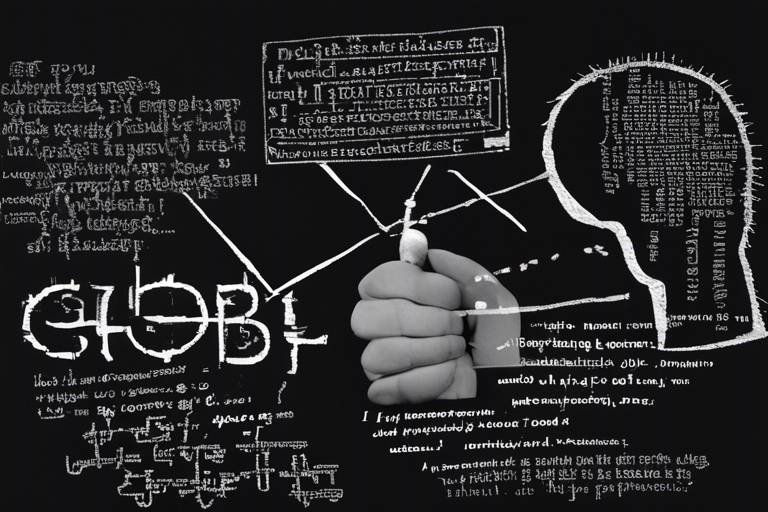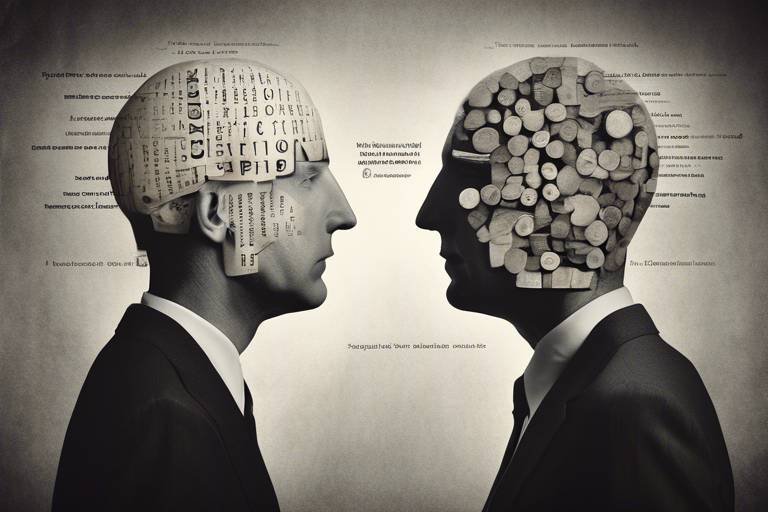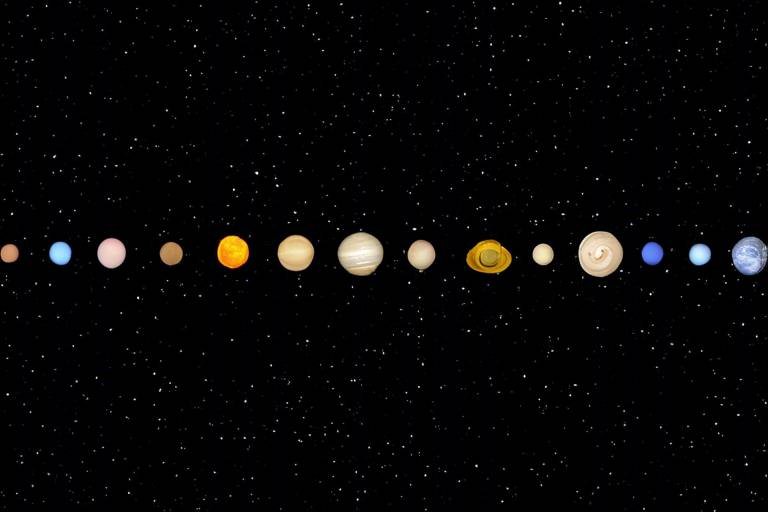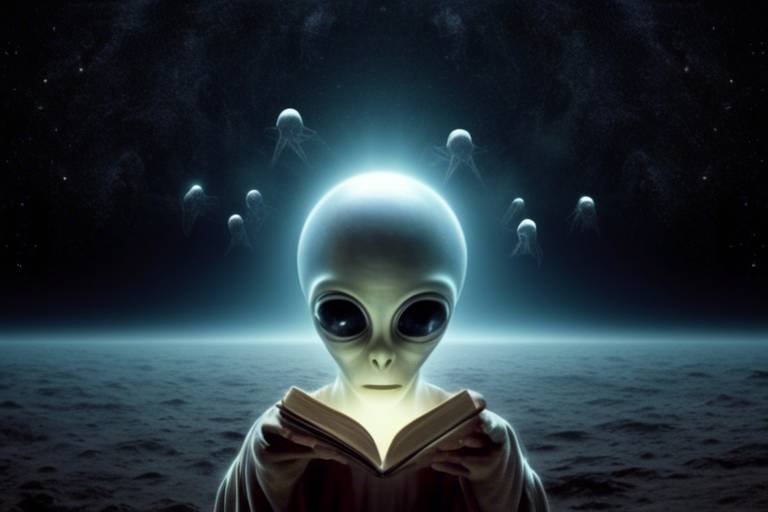The Purpose of Life - Can Science Answer This Philosophical Question?
The quest for understanding the purpose of life has captivated human minds for centuries. It’s a question that dances on the edges of both science and philosophy, leaving many to wonder if empirical evidence can shed light on such a profound topic. Can we really find meaning through the lens of science, or does it simply provide a backdrop against which our individual meanings unfold? This article delves into the intricate relationship between scientific inquiry and philosophical pondering, aiming to unravel the threads that connect our existence to broader cosmic narratives.
From the moment we first gazed at the stars, humans have sought to understand their place in the universe. Science, with its rigorous methodologies and evidence-based approach, offers insights that can either illuminate or complicate our understanding of life's purpose. The theory of evolution, for instance, provides a framework for understanding how life has developed over billions of years, driven by the mechanisms of natural selection and adaptation. Through this lens, one might argue that the purpose of life is simply to survive and reproduce, ensuring the continuation of our species. However, does that reductionist view satisfy our deeper existential yearnings?
Biology further enriches this conversation by revealing the intricate systems and processes that sustain life. From the cellular level to complex ecosystems, science shows us that life is interwoven with a web of relationships. Just as a spider spins its web, we too are part of a larger tapestry, interconnected with every living organism on this planet. This perspective invites us to consider that perhaps our purpose is not merely individualistic but rather collective, emphasizing our roles within the grand design of life.
While science provides a tangible framework, philosophy dives into the depths of human experience, exploring the myriad ways we seek meaning. Various philosophical schools of thought have grappled with the question of life's purpose, each offering unique insights that resonate differently with individuals. For instance, existentialism posits that in a seemingly indifferent universe, the burden of meaning falls on the individual. This perspective challenges us to confront our freedom and responsibility in crafting our own purpose.
At the heart of existentialism lies the assertion that we are not born with an inherent purpose; instead, we must forge our own meaning through the choices we make. Think of it like being handed a blank canvas—what masterpiece will you create? This notion is vividly illustrated in the works of philosophers like Jean-Paul Sartre, who famously claimed that "existence precedes essence." In other words, we exist first and then define who we are through our actions and decisions. This empowers us to take charge of our lives, but it also comes with the weight of responsibility. Are you ready to embrace that challenge?
Sartre's philosophy emphasizes that our essence is not predetermined; rather, it is shaped by our experiences and choices. Just as a sculptor chisels away at a block of marble to reveal a statue, we carve out our identities through our interactions with the world. This view encourages us to reflect on our values and aspirations, asking ourselves: What truly matters to me? What legacy do I wish to leave behind?
Similarly, Albert Camus introduces the concept of the absurd, which highlights the inherent conflict between our desire for meaning and the universe's indifference. In his view, the search for meaning is a fundamental human struggle, one that can lead to feelings of despair. Yet, Camus suggests that we can find joy in the struggle itself. Embracing the absurd allows us to live fully, savoring each moment rather than seeking ultimate answers. It’s akin to dancing in the rain rather than waiting for the storm to pass.
On the flip side of the philosophical coin, we find utilitarianism, which provides a framework for understanding life's purpose through the lens of maximizing happiness and minimizing suffering for the greatest number. This perspective encourages us to consider the impact of our actions on others, urging us to contribute to the common good. In a world rife with challenges, the utilitarian approach prompts us to ask: How can I make a difference? What role do I play in alleviating suffering and promoting joy?
While science and philosophy offer valuable insights, religion has historically played a pivotal role in shaping our understanding of life's purpose. Various religious beliefs provide frameworks that address fundamental questions about morality, existence, and the afterlife. They often offer narratives that connect individual lives to a larger cosmic order, providing comfort and direction.
Different religions articulate their views on the purpose of life in unique ways. For instance, in Christianity, the belief is often centered around serving God and others, emphasizing love and compassion as pathways to fulfillment. In contrast, Buddhism teaches the importance of overcoming suffering through enlightenment and mindfulness, while Hinduism explores the concept of dharma, or duty, as a means of fulfilling one's purpose. Each perspective invites individuals to reflect on their beliefs and values, contributing to a rich tapestry of understanding.
In recent years, a rise in spiritual but non-religious perspectives has emerged, focusing on personal experiences, mindfulness, and connection with the universe. Many individuals seek purpose through practices like meditation, yoga, or simply spending time in nature. This shift reflects a growing desire for personal meaning that transcends traditional religious boundaries, allowing for a more individualized exploration of life's purpose.
- Can science provide a definitive answer to life's purpose? Science offers insights but does not provide a singular answer, as purpose often varies by individual beliefs and experiences.
- How do philosophical views influence our understanding of purpose? Philosophical perspectives challenge us to consider our responsibilities and the meanings we create through our choices.
- What role does religion play in defining life's purpose? Religion offers frameworks and narratives that connect individual lives to a larger cosmic order, providing meaning and direction.
- Can spirituality exist outside of organized religion? Yes, many find purpose through personal spiritual practices, emphasizing individual connection to the universe.
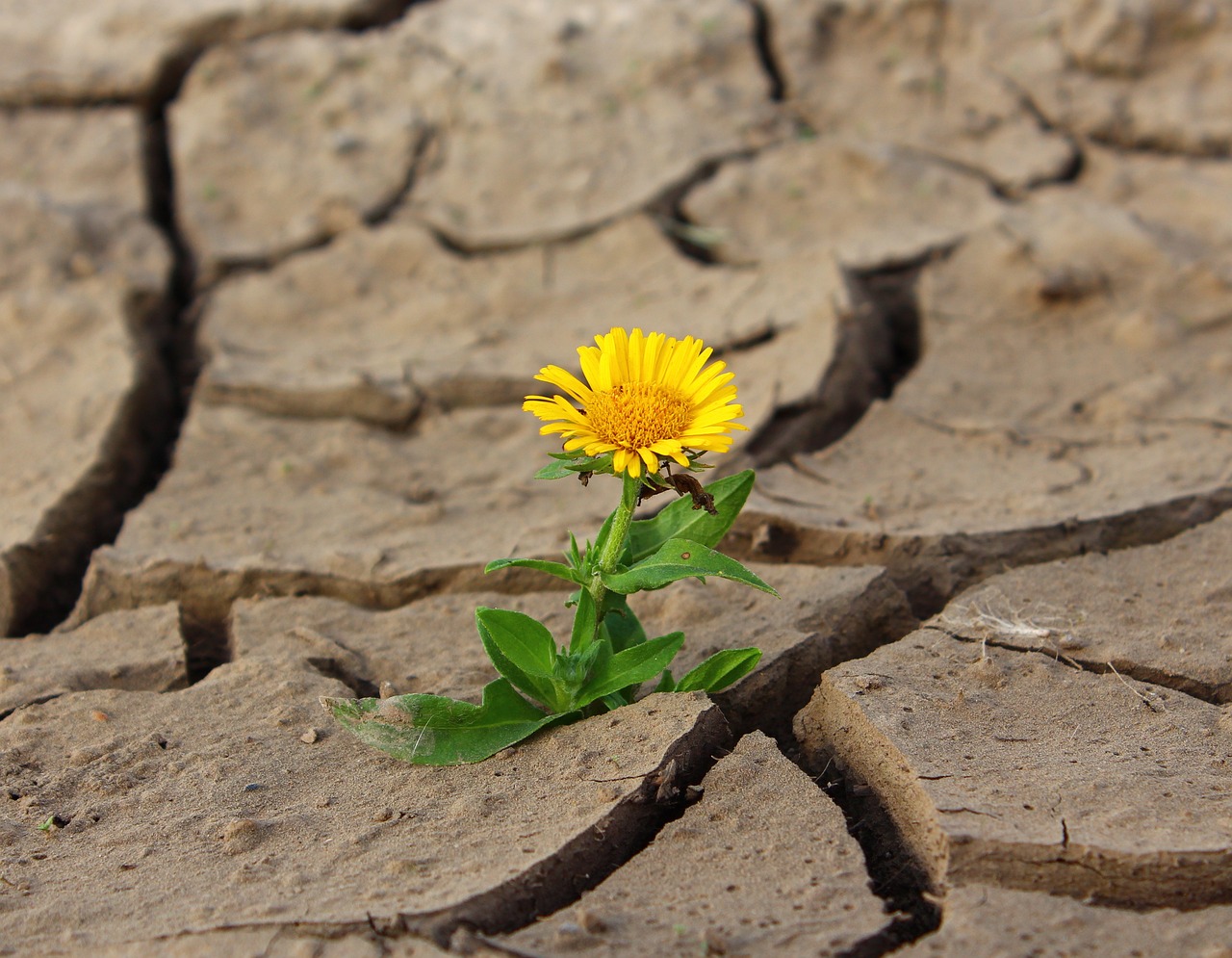
The Scientific Perspective on Life's Purpose
When we dive into the realm of science, the question of life's purpose takes on a different hue. Science, with its rigorous methodologies and empirical evidence, offers a framework that can seem starkly different from the philosophical musings of the past. At the heart of this scientific inquiry lies the theory of evolution, which posits that life is the result of billions of years of natural processes. This perspective suggests that rather than being created for a specific purpose, life is a byproduct of adaptation and survival.
Consider the intricate dance of DNA, the blueprint of life. Each organism, from the simplest bacteria to the most complex mammals, is a product of countless generations of survival. The mechanisms of evolution, such as natural selection, provide insight into how species adapt over time, but they don't necessarily dictate a purpose. Instead, they highlight the mechanisms that drive existence. So, if we think about it, does our existence serve a purpose, or are we simply here as a consequence of a long, unplanned process?
Moreover, biology reveals fascinating insights into the workings of life. For instance, the study of ecosystems shows us how interconnected we are. Every organism plays a role in its environment, contributing to a larger system that thrives on balance. This interdependence can lead us to ponder whether our purpose is tied to the greater good of the planet. Are we here to protect, nurture, and sustain the world around us? Or is our purpose merely to exist and reproduce, ensuring the survival of our species?
In recent years, the field of neuroscience has also contributed to our understanding of purpose. Research on the human brain indicates that our sense of purpose can have profound effects on our mental health and overall well-being. For instance, studies show that individuals who feel a sense of purpose tend to experience lower levels of stress, anxiety, and depression. This leads us to an intriguing question: could our biological makeup be wired to seek out purpose as a means of survival? It’s as if our brains are hardwired to search for something more, something that transcends mere existence.
However, while science provides valuable insights, it often leaves us with more questions than answers. The intersection of science and philosophy is where things get particularly interesting. Can we reconcile the scientific view of life as a series of random events with the philosophical quest for meaning? In many ways, science invites us to explore the "how" of existence, while philosophy challenges us to confront the "why." It's a dynamic interplay that continues to evolve as we expand our understanding of the universe.
To illustrate this relationship, let’s take a look at a simple table that summarizes key scientific perspectives on life's purpose:
| Scientific Perspective | Key Concept | Implication for Purpose |
|---|---|---|
| Evolution | Natural selection and adaptation | No inherent purpose; existence is a result of survival |
| Biology | Interconnected ecosystems | Purpose may relate to sustaining life on Earth |
| Neuroscience | Sense of purpose linked to mental health | Purpose may be biologically advantageous for survival |
In conclusion, the scientific perspective on life's purpose challenges us to rethink our assumptions. While it may not provide definitive answers, it opens the door to a deeper understanding of our existence. So, what do you think? Is life merely a series of biological processes, or is there something more? The beauty of this inquiry lies in its complexity, inviting us to explore, question, and ultimately discover our own paths to meaning.
- Can science provide a definitive answer to life's purpose? Science offers insights but often raises more questions than it answers.
- How does evolution relate to our understanding of purpose? Evolution suggests that life is a result of natural processes rather than a preordained purpose.
- What role does neuroscience play in understanding purpose? Neuroscience indicates that having a sense of purpose can positively impact mental health.
- Is purpose solely a human concern? While humans actively seek purpose, many animals exhibit behaviors that suggest a drive for survival and reproduction.

Philosophical Approaches to Life's Meaning
When we dive into the question of life's purpose, we find ourselves navigating through a vast ocean of philosophical thought. Each wave represents a different school of philosophy, all attempting to answer the same fundamental question: What is the meaning of life? From existentialism, which emphasizes individual freedom and responsibility, to utilitarianism, which focuses on collective happiness, these perspectives offer a rich tapestry of ideas that shape our understanding of existence.
Existentialism, for instance, posits that life is inherently meaningless, and it is up to each individual to create their own purpose. This philosophy resonates with many because it champions personal freedom and authenticity. Imagine standing at the edge of a cliff, the wind whipping through your hair, and realizing that you are the architect of your own destiny. Existentialists like Jean-Paul Sartre and Albert Camus argue that in a universe that may seem indifferent to our struggles, we must forge our own paths and find meaning in our choices.
Within existentialism, the idea of individual purpose stands out prominently. Sartre famously declared, "Existence precedes essence," suggesting that we first exist and then define what we are through our actions. This perspective places immense responsibility on the individual. It’s akin to being handed a blank canvas and a palette of colors, allowing you to paint your own life’s masterpiece. The catch? You must decide what to create without a predefined guide. This concept can be liberating yet daunting, as it emphasizes that we are the ones who must give our lives meaning.
Sartre’s philosophy invites us to reflect on the choices we make and how they shape our identities. He believed that every choice we make contributes to our essence, essentially crafting who we are. This notion challenges us to consider: are we living authentically, or are we merely conforming to societal expectations? In a world filled with distractions and obligations, the existentialist's call to authenticity can feel like a beacon, urging us to seek out our true selves amidst the noise.
On the other hand, Albert Camus introduces us to the concept of the absurd. He argues that the human quest for meaning is a fundamental struggle against the backdrop of an indifferent universe. Picture a Sisyphean existence where we are condemned to roll a boulder up a hill only to watch it roll back down again. Camus suggests that while the universe may not offer inherent meaning, we can still find joy and purpose in the struggle itself. This perspective encourages us to embrace life’s absurdities and live fully, even in the face of uncertainty.
Shifting gears, we encounter utilitarianism, which provides a contrasting approach to understanding life's purpose. This philosophical framework, popularized by thinkers like Jeremy Bentham and John Stuart Mill, suggests that the ultimate goal of human actions should be to maximize happiness and minimize suffering for the greatest number of people. Imagine a community where every decision is evaluated based on its potential to enhance overall well-being. This collective approach to purpose emphasizes the interconnectedness of human experiences and the importance of considering the impact of our actions on others.
In summary, the philosophical approaches to life's meaning are as diverse as humanity itself. Whether through the lens of existentialism, which champions individual responsibility, or utilitarianism, which focuses on collective happiness, these perspectives provide valuable insights into our existence. They challenge us to reflect on our choices and consider how we can contribute to a more meaningful life, both for ourselves and for those around us.
- What is existentialism? Existentialism is a philosophical movement that emphasizes individual freedom and the necessity for each person to create their own meaning in life.
- How does utilitarianism define purpose? Utilitarianism defines purpose as the pursuit of maximizing happiness and minimizing suffering for the greatest number of people.
- Can science and philosophy coexist in understanding life's purpose? Yes, science and philosophy can complement each other, with science providing insights into existence while philosophy explores the implications of those insights.

Existentialism and Individual Purpose
When we dive into the realm of existentialism, we encounter a profound assertion: life doesn't come with a pre-packaged purpose. Instead, existentialist philosophers like Jean-Paul Sartre and Albert Camus argue that it’s up to each individual to carve out their own meaning in a universe that often feels indifferent to our existence. Imagine standing in a vast, empty room with blank walls; it’s up to you to paint the picture of your life. This idea can be both liberating and daunting, as it places the responsibility of meaning squarely on our shoulders.
Sartre famously claimed that “existence precedes essence,” suggesting that we first exist, and only later do we define who we are through our choices. This concept challenges the notion that we are born with a predetermined purpose. Instead, we are like blank slates, and our actions, decisions, and experiences fill in the canvas of our lives. It’s a bit like being an artist with a palette of colors, where every choice adds depth and character to our masterpiece. The freedom to choose is exhilarating, but it also comes with the weight of responsibility. If we are the artists of our own lives, we must also face the consequences of our brush strokes.
On the other hand, Camus introduces us to the notion of the absurd, which highlights the tension between our desire for meaning and the chaotic, often nonsensical nature of the universe. He posits that while life may not inherently possess meaning, the struggle to find it is what defines our humanity. Think of it like trying to solve a puzzle with pieces that don’t quite fit; it’s frustrating, yet the pursuit itself can be enriching. Camus famously used the myth of Sisyphus to illustrate this point. Sisyphus, condemned to roll a boulder up a hill only to watch it roll back down, embodies the human condition. Yet, Camus suggests that we must imagine Sisyphus happy, finding purpose in the struggle itself rather than in the outcome.
In essence, existentialism encourages a journey of self-discovery where individuals embrace their freedom and responsibility to create meaning. It asks us to reflect on our values, passions, and desires, leading to a more authentic existence. This philosophy resonates deeply in today’s fast-paced world, where many feel lost amid societal expectations and norms. By rejecting the idea of a universal purpose, existentialism opens the door to a multitude of personal meanings, allowing each person to live a life that is uniquely their own. In this sense, life becomes a canvas, and we, the artists, are free to paint our own narratives.
Ultimately, the existentialist perspective invites us to ponder: if we are the architects of our own lives, what kind of structure will we build? Will it be a towering skyscraper of ambition, a cozy cottage of contentment, or perhaps a sprawling garden of experiences? The choice is ours, and therein lies the beauty of existentialism.
- What is existentialism? Existentialism is a philosophical movement that emphasizes individual freedom, choice, and the search for meaning in an indifferent universe.
- Who are the main existentialist philosophers? Key figures include Jean-Paul Sartre, Albert Camus, and Simone de Beauvoir, each contributing unique perspectives on existence and meaning.
- How does existentialism affect our understanding of purpose? Existentialism posits that individuals must create their own purpose through choices and actions, rather than adhering to pre-defined meanings.
- What is the significance of the absurd in existentialism? The absurd highlights the conflict between our desire for meaning and the chaotic nature of the universe, suggesting that the search for meaning is a fundamental human struggle.

Sartre's Notion of Existence Preceding Essence
Jean-Paul Sartre, a prominent figure in existential philosophy, introduced the groundbreaking idea that existence precedes essence. This phrase encapsulates the belief that humans first exist, and only later define their essence through choices and actions. Imagine a sculptor standing before a block of marble; the artist must chip away at the stone to reveal the statue within. In the same way, we are not born with a predetermined purpose or essence; instead, we continuously shape our identities through our decisions and experiences.
Sartre argued that this freedom to create meaning can be both exhilarating and daunting. On one hand, it empowers individuals to live authentically and embrace their unique paths. On the other hand, it places a heavy burden of responsibility on each person to define their own essence. This notion challenges the traditional view that a higher power or predetermined fate dictates our purpose. Instead, it asserts that we are the architects of our own lives, responsible for the choices we make and the meanings we construct.
To better understand Sartre's perspective, consider these key points:
- Freedom of Choice: According to Sartre, every individual has the freedom to choose their path, which is the cornerstone of human existence.
- Personal Responsibility: With freedom comes responsibility; we must own our decisions and their consequences.
- Authenticity: Living authentically means aligning one's actions with personal beliefs and values, rather than conforming to societal expectations.
In this framework, the search for meaning becomes a deeply personal journey. Each person must confront the absurdity of life and the inherent lack of objective meaning. Sartre believed that acknowledging this absurdity is the first step toward authentic living. It is a call to embrace our freedom, to create our essence, and to navigate the complexities of existence without relying on external validations.
Ultimately, Sartre's philosophy invites us to reflect on our existence and to take an active role in shaping our lives. It challenges us to ask ourselves: What does it mean to live authentically? How do we define our essence in a world that often feels chaotic and indifferent? These questions are not merely academic; they resonate deeply with our everyday experiences, urging us to engage with life fully and consciously.

Camus and the Absurd
Albert Camus, a French philosopher and writer, introduced the concept of the absurd, which serves as a cornerstone of his philosophy. But what does it mean to grapple with the absurd? In essence, Camus posited that life is inherently devoid of meaning, yet humans are wired to seek out significance and purpose. This dissonance creates what he termed “the absurd”—a conflict between our desire for clarity and the chaotic, indifferent universe we inhabit.
Imagine standing in front of a vast, unyielding ocean, waves crashing relentlessly against the shore. You yearn to find a message in the tumult, but the ocean merely reflects your own thoughts back at you. This metaphor encapsulates Camus' view: while we search for meaning, the universe remains silent. He believed that acknowledging this absurdity is the first step toward liberation. By accepting that life lacks inherent meaning, we can begin to create our own purpose, free from the constraints of societal expectations or dogmatic beliefs.
One of Camus' most famous works, The Myth of Sisyphus, illustrates this struggle beautifully. Sisyphus, a figure from Greek mythology, is condemned to roll a boulder up a hill, only for it to roll back down each time he reaches the summit. This eternal task symbolizes the human condition—endlessly striving for meaning in a world that offers none. Yet, Camus argues that there is a profound beauty in Sisyphus' plight. He famously concludes that “one must imagine Sisyphus happy.” By embracing the absurd and finding joy in the struggle itself, we can carve out our own meaning amidst the chaos.
In Camus' view, the recognition of life's absurdity does not lead to nihilism or despair. Instead, it invites a sense of freedom. When we stop searching for external validation or absolute truths, we can live authentically and passionately. This perspective encourages us to engage fully with life, to experience joy, love, and even suffering without the burden of seeking a grand purpose. It’s about living in the moment and appreciating the fleeting beauty of existence.
Ultimately, Camus challenges us to confront the absurd with courage. He urges us to accept that while the universe may be indifferent, our experiences, emotions, and connections with others can still hold profound significance. So, how do we navigate this absurd existence? By embracing our freedom to create meaning within our own lives, we can transform the struggle into something worthwhile.
In summary, Camus' philosophy of the absurd invites us to reflect on our own lives. It encourages us to ask ourselves: What does it mean to live authentically in a world that offers no definitive answers? The journey toward understanding our purpose may not be straightforward, but it is precisely this quest that enriches our human experience.
- What is the main idea behind Camus' philosophy of the absurd? Camus argues that life is inherently meaningless, yet humans naturally seek purpose, creating a conflict he calls “the absurd.”
- How does Camus suggest we cope with the absurdity of life? He encourages individuals to embrace the absurd and create their own meaning, rather than relying on external sources for validation.
- What is the significance of Sisyphus in Camus' philosophy? Sisyphus symbolizes the human condition, illustrating the struggle for meaning in an indifferent universe. Camus concludes that we must imagine him happy, emphasizing the beauty in the struggle itself.

Utilitarianism and Collective Purpose
When we dive into the concept of utilitarianism, we find ourselves in a realm where the greatest good for the greatest number reigns supreme. This philosophical framework, primarily associated with thinkers like Jeremy Bentham and John Stuart Mill, posits that the moral worth of an action is determined by its outcome. In simpler terms, if an action results in more happiness than suffering, it is deemed good. But how does this translate into our understanding of life's purpose?
Utilitarianism offers a collective approach to purpose, suggesting that our existence is tied not just to individual fulfillment, but also to the well-being of others. Imagine life as a vast tapestry, where each thread represents an individual's happiness. The goal, according to utilitarian thought, is to weave a tapestry that is as vibrant and rich as possible, benefiting the largest number of threads. This perspective can lead to profound implications for how we live our lives, make decisions, and interact with one another.
At its core, utilitarianism encourages us to consider the broader impact of our actions. For instance, when making choices, we might ask ourselves questions such as:
- Will this decision enhance the happiness of others?
- Am I contributing to a society that minimizes suffering?
- How can my actions lead to the greatest benefit for the most people?
These questions not only guide personal behavior but also influence societal norms. By prioritizing collective happiness, utilitarianism can inspire policies aimed at improving public welfare, such as healthcare reforms, education initiatives, and environmental protections. It's a call to action that reminds us that our purpose extends beyond mere survival or personal gain; it’s about creating a ripple effect of positivity in the world.
However, utilitarianism is not without its critics. Some argue that it can lead to a "tyranny of the majority," where the needs of the few are sacrificed for the happiness of the many. This raises important ethical questions about justice and individual rights. For example, if a policy benefits 90% of the population but harms a minority, does that make it just? These debates highlight the complexity of defining purpose in a world filled with diverse needs and perspectives.
In conclusion, utilitarianism provides a compelling framework for understanding life's purpose through the lens of collective well-being. It challenges us to look beyond ourselves and to think about how our actions affect the greater community. By embracing this philosophy, we can strive not only for personal fulfillment but also for a more harmonious and compassionate society.
- What is utilitarianism? Utilitarianism is a moral philosophy that suggests the best action is the one that maximizes overall happiness or utility.
- Who are the key figures in utilitarianism? Key figures include Jeremy Bentham and John Stuart Mill, who laid the groundwork for utilitarian thought.
- What are the criticisms of utilitarianism? Critics argue that it can lead to the neglect of individual rights and the potential for the majority to impose their will on the minority.
- How does utilitarianism relate to life's purpose? Utilitarianism suggests that our purpose can be found in contributing to the happiness and well-being of others, promoting a collective sense of fulfillment.

The Role of Religion in Defining Purpose
Religion has long served as a compass for humanity, guiding individuals and communities in their quest for meaning and purpose. Across cultures and epochs, religious beliefs have provided frameworks that shape our understanding of existence, morality, and the afterlife. But how exactly do these beliefs influence our perception of life's purpose? It's a fascinating question that intertwines faith, tradition, and personal experience.
At its core, religion often posits that life is not a mere accident of biology but rather a part of a grander design. For many, this belief fosters a sense of belonging and connection to something greater than themselves. The teachings of various religions offer insights into how individuals can navigate their lives with purpose, often emphasizing virtues such as love, compassion, and service. For instance, in Christianity, the notion of serving others and following the teachings of Jesus Christ is seen as a pathway to fulfilling one's purpose. Similarly, in Buddhism, the pursuit of enlightenment and the alleviation of suffering are central themes that guide adherents toward a meaningful existence.
A striking aspect of religious perspectives on purpose is the promise of an afterlife or a transcendent state. This belief can profoundly impact how individuals approach their lives. The idea that actions in this life have consequences in an afterlife can motivate people to live morally and ethically. Conversely, some might argue that such beliefs could lead to a fear-driven existence, where the focus is more on avoiding punishment than on achieving fulfillment. Nevertheless, the comforting notion of an enduring spirit often provides solace in times of hardship.
To illustrate the diverse interpretations of purpose across religions, let's take a look at a comparative overview:
| Religion | View on Life's Purpose | Afterlife Belief |
|---|---|---|
| Christianity | To love and serve God and others | Heaven and Hell |
| Buddhism | To attain enlightenment and relieve suffering | Rebirth and Nirvana |
| Hinduism | To fulfill one's Dharma and achieve Moksha | Reincarnation and liberation |
| Islam | To submit to the will of Allah and live righteously | Paradise and Hellfire |
Beyond traditional organized religions, there's also a growing movement toward spirituality that transcends dogma. Many individuals are seeking purpose through personal experiences, mindfulness, and a connection with the universe. This spiritual but non-religious approach emphasizes individual interpretation and experience, allowing people to derive meaning from their lives without the constraints of formal religious structures. This shift reflects a broader trend where personal exploration and subjective experiences are valued as sources of meaning.
In conclusion, religion plays a pivotal role in shaping our understanding of life's purpose, offering a myriad of interpretations that can guide individuals in their personal journeys. Whether through the structured doctrines of organized faiths or the fluidity of personal spirituality, the search for meaning remains a fundamental aspect of the human experience. As we continue to explore these profound questions, it's essential to remain open to the diverse beliefs and practices that contribute to our collective understanding of purpose.
- What is the primary purpose of religion? Religion often aims to provide meaning, community, and moral guidance to its followers.
- How do different religions interpret life's purpose? Each religion has its unique teachings and beliefs that shape its followers' understanding of life's purpose.
- Can one find purpose outside of organized religion? Yes, many people find meaning through personal spirituality, philosophy, and self-exploration.
- Is belief in an afterlife essential for finding purpose? While many religions emphasize an afterlife, others focus on the importance of living a meaningful life in the present.

Religious Interpretations of Purpose
When it comes to understanding life's purpose, religion often serves as a guiding light for millions around the globe. Different faiths encompass a myriad of beliefs that shape our understanding of existence, morality, and the afterlife. For many, these beliefs provide a framework through which they can navigate the complexities of life, offering answers to questions that science may not fully address. So, what do various religions say about our purpose? Let's take a closer look.
In Christianity, for instance, the purpose of life is often seen as a divine calling to love and serve God and others. This perspective is rooted in the teachings of Jesus, who emphasized love, compassion, and forgiveness. Christians believe that by living according to these principles, they can fulfill their purpose and ultimately attain eternal life in heaven. The Bible states in Matthew 22:37-39, “Love the Lord your God with all your heart and with all your soul and with all your mind. This is the first and greatest commandment. And the second is like it: ‘Love your neighbor as yourself.’”
Buddhism, on the other hand, offers a different interpretation of life's purpose. Central to Buddhist belief is the concept of suffering and the path to enlightenment. Buddhists seek to understand the nature of suffering and aim to transcend it through the practice of mindfulness, meditation, and ethical living. The ultimate goal is to achieve Nirvana, a state of liberation from the cycle of birth and rebirth. In this sense, life's purpose is to cultivate wisdom and compassion, ultimately leading to a peaceful existence.
Hinduism presents a multifaceted view of purpose, often revolving around the concepts of dharma (duty), artha (prosperity), kama (pleasure), and moksha (liberation). Each individual is believed to have a unique role in the cosmic order, and fulfilling one's dharma is considered essential for achieving personal and spiritual growth. The pursuit of these goals is seen as a way to contribute to the greater good of society and the universe at large, ultimately leading to spiritual liberation.
Here’s a brief comparison of how these three religions interpret life's purpose:
| Religion | Purpose of Life |
|---|---|
| Christianity | To love and serve God and others, leading to eternal life. |
| Buddhism | To understand and transcend suffering, achieving enlightenment. |
| Hinduism | To fulfill one's dharma and pursue spiritual liberation. |
Moreover, the rise of spirituality beyond organized religion has led many to seek purpose through personal experiences and connections with the universe. This approach often emphasizes the importance of mindfulness and self-awareness, allowing individuals to define their own purpose rather than adhering strictly to religious doctrines. It reflects a growing trend of people finding meaning in life through nature, relationships, and personal growth.
Ultimately, religious interpretations of purpose provide diverse perspectives that enrich our understanding of existence. Whether one finds meaning through the teachings of a particular faith or through a more individualized spiritual journey, the quest for purpose remains a fundamental aspect of the human experience. Each belief system offers its own unique insights, encouraging us to explore the deeper questions of life while fostering a sense of community and belonging.

Spirituality Beyond Organized Religion
In today's fast-paced world, many people are seeking deeper connections and meaning outside the confines of traditional organized religion. This movement towards spirituality reflects a growing desire for personal experiences that resonate with individual beliefs and values. Unlike organized religions, which often come with established doctrines and rituals, spirituality encourages a more personalized journey. It invites individuals to explore their own paths to understanding life's purpose, often leading to profound insights and self-discovery.
One of the most appealing aspects of spirituality is its flexibility. It allows individuals to pick and choose beliefs that resonate with them, creating a unique tapestry of practices and philosophies. For instance, someone might blend elements of meditation, mindfulness, and nature appreciation with concepts from various religions or philosophies. This eclectic approach not only fosters a sense of belonging but also promotes a deeper connection to oneself and the universe. Such practices can lead to greater inner peace and a more profound understanding of one's place in the cosmos.
Moreover, spirituality often emphasizes the importance of mindfulness and being present in the moment. This focus on the here and now can be incredibly liberating, allowing individuals to let go of past regrets and future anxieties. Engaging in mindfulness practices, such as meditation or yoga, can cultivate a sense of awareness that enhances one’s appreciation for life. As people become more attuned to their thoughts and feelings, they may find clarity regarding their purpose and the impact they wish to have on the world.
Another key element of spirituality is the sense of connection it fosters—not only to oneself but also to others and the universe at large. Many spiritual seekers report feeling a profound sense of unity with everything around them. This interconnectedness can lead to a greater sense of empathy and compassion, as individuals recognize that they are part of a larger tapestry of existence. Such realizations can inspire people to engage in acts of kindness and service, further enriching their lives and the lives of those around them.
Additionally, spirituality often encourages exploration beyond the physical realm. Many individuals find themselves drawn to the mysteries of existence, pondering questions about the universe, consciousness, and what lies beyond death. This quest for understanding can be both thrilling and daunting, but it is a journey that many find deeply fulfilling. Whether through reading, discussions, or personal reflection, the search for answers can provide a sense of purpose that is both grounding and expansive.
In conclusion, spirituality beyond organized religion offers a pathway for individuals to discover their own meanings and purposes in life. By embracing personal beliefs, practicing mindfulness, fostering connections, and exploring existential questions, people can navigate their spiritual journeys in ways that resonate deeply with their unique experiences. This approach not only enriches individual lives but also contributes to a broader understanding of our shared humanity.
- What is the difference between spirituality and religion? Spirituality is often seen as a personal journey that focuses on individual beliefs and experiences, while religion typically involves organized practices and shared doctrines.
- Can spirituality exist without organized religion? Yes, many people find spiritual fulfillment through personal exploration, practices like meditation, and a connection to nature, independent of formal religious structures.
- How can I start my own spiritual journey? Begin by exploring different practices such as meditation, journaling, or connecting with nature. Reflect on what resonates with you and seek experiences that foster personal growth.
- Is mindfulness a part of spirituality? Absolutely! Mindfulness is a key practice in many spiritual paths, helping individuals stay present and cultivate awareness of their thoughts and feelings.
Frequently Asked Questions
- What is the purpose of life according to science?
Science often approaches the question of life's purpose by examining biological processes, evolutionary theories, and the mechanisms that sustain life. While science may not provide a definitive answer to the philosophical query of "why," it helps us understand the "how" of existence, revealing that our purpose may be tied to survival, reproduction, and the continuation of our species.
- How do existentialist philosophers define individual purpose?
Existentialist thinkers, like Jean-Paul Sartre, argue that individuals must forge their own meaning in a universe that lacks inherent purpose. This philosophy emphasizes personal responsibility and the freedom to choose, suggesting that it is through our choices and actions that we create our essence and define our life's purpose.
- What is the concept of the absurd according to Albert Camus?
Albert Camus introduced the idea of the absurd, which posits that the human quest for meaning is a natural response to an indifferent universe. He argues that while life may seem devoid of purpose, the struggle to find meaning is a fundamental aspect of the human experience, and embracing this absurdity can lead to a more authentic existence.
- How does utilitarianism relate to life’s purpose?
Utilitarianism offers a collective perspective on life's purpose, positing that our aim should be to maximize happiness and minimize suffering for the greatest number of people. This ethical framework encourages individuals to consider the impact of their actions on others, promoting a sense of shared purpose through the pursuit of overall well-being.
- What role does religion play in defining life's purpose?
Various religions provide distinct interpretations of life's purpose, often rooted in spiritual beliefs, moral guidelines, and concepts of an afterlife. For example, Christianity may emphasize serving God and others, while Buddhism focuses on achieving enlightenment. These religious frameworks can shape individual and collective understandings of existence and morality.
- Can spirituality exist outside of organized religion?
Absolutely! Many people seek purpose through personal spirituality, which may involve practices like mindfulness, meditation, and a deep connection with the universe. This approach allows individuals to explore their beliefs and experiences without the confines of organized religion, fostering a unique and personal understanding of purpose.




